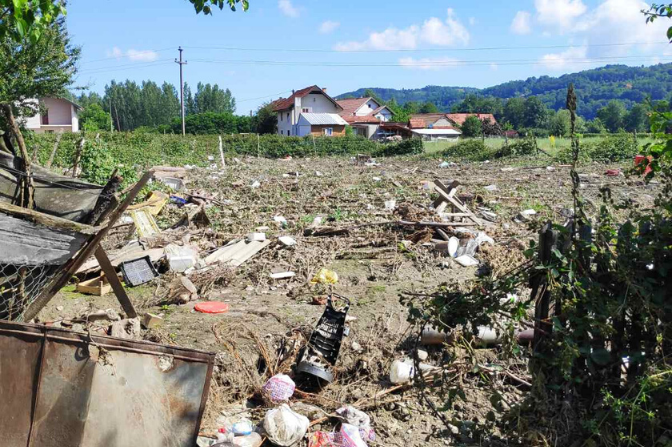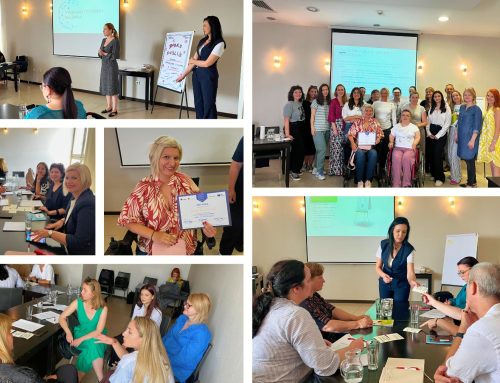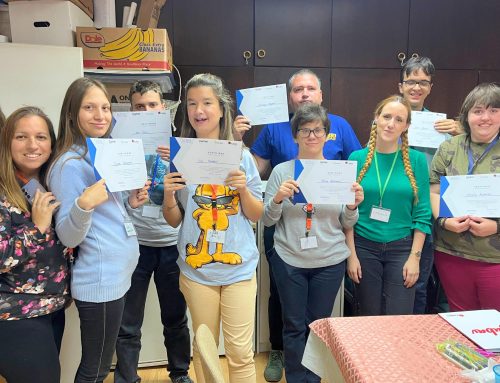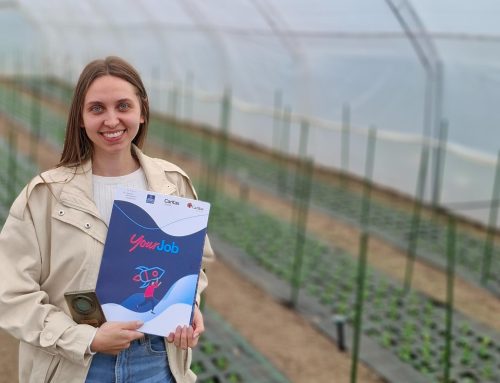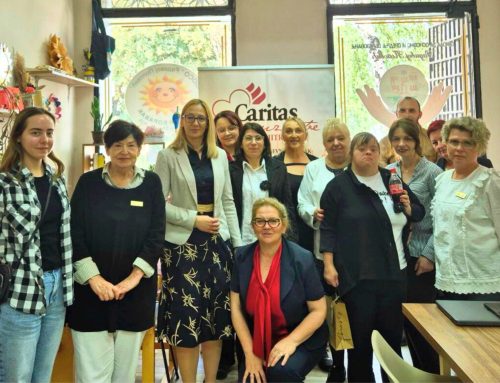Višednevne obilne kiše koje su padale krajem juna prouzrokovale su jake poplave i klizišta u zapadnoj i južnoj Srbiji, kao i delovima Ukrajine i Bosne i Hercegovine.
U Srbiji je 20 gradova i opština proglasilo vanredno stanje, a više od 500 domaćinstava je poplavljeno. Mnoge porodice iz ruralnih sredina utočište su pronašle kod rodbine i prijatelja. Više od 415 km puteva je uništeno, te mnogi ne mogu da se vrate u svoje domove, čak i ako su im kuće trenutno suve.
Još je rano za procenu punog ekonomskog uticaja, ali sigurno je da su posledice katastrofalne. Na primer, u samo dve opštine (Ivanjica, Arilje) voda je uništila više od 1.000 hektara malina, jednog od glavnih izvora prihoda domaćinstava u tom regionu. Poljoprivrednici su ove godine već uložili sredstva, prihoda neće biti ove, a verovatno ni 2021. godine, jer je potrebno vreme da se zasadi oporave. Pored malinjaka, uništeno je na hiljade hektara voćnjaka i zasada drugih biljnih kultura.
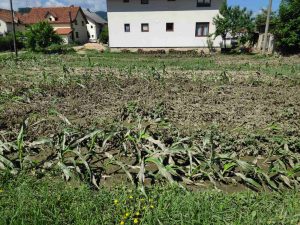
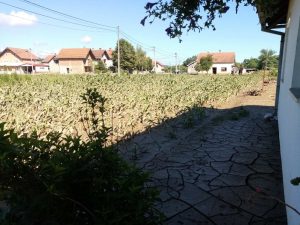
Caritas Srbije, zajedno sa Caritasom Beogradske nadbiskupije i župnim Caritasom Valjevo i Caritasom Šabac, pruža podršku pogođenim lokalnim zajednicama u opštinama Ljubovija, Osečina, Ivanjica, Arilje i Lučani. Svoj rad koordiniraju sa lokalnim vlastima i planiraju da pomognu ugroženim domaćinstvima tokom jednomesečnog perioda.
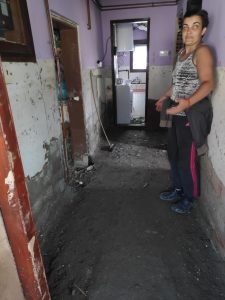
Potrebe su definisane na terenu u saradnji sa lokalnim zajednicama i uključuju nabavku hrane i sredstava za održavanje lićne higijene i higijene prostora. Tokom čitave akcije poštuju se mere zaštite i preporuke protiv širenja COVID-19. Caritas takođe pomaže pogođenima pozajmljujući im specijalizovane odvlaživače vode koji ubrzavaju proces sušenja poplavljenih kuća. Caritas Beograd je ove sušilice dobio kao donaciju tokom poplava 2014. godine.
Region je već pretrpeo teške posledice razornih poplava 2014. godine i od tada je uloženo mnogo napora da se smanji rizik od nastajanja katastrofa. Međutim, te napore i dalje treba povećati. Caritas Srbije je u regionu prepoznat kao važan akter u smanjenju rizika od katastrofa.
„Ove poplave nam još jednom pokazuju kako se prirodne katastrofe mogu brzo dogoditi i imati ogroman uticaj na mnoge porodice uništavajući im imovinu i izvor prihoda za duži vremenski period. Stoga, pored pružanja pomoći pogođenima, moramo da nastavimo i pojačamo brigu o našem zajedničkom domu i uvećamo napore na smanjenju rizika od katastrofa kroz edukovanje i pružanje podrške lokalnim zajednicama da se pripreme za slučaj prirodnih katastrofa“, rekao je velečasni Ivica Damjanović, direktor Caritasa Srbije.
“Hitni izazov za zaštitu našeg zajedničkog doma uključuje brigu o okupljanju čitave ljudske porodice radi traganja za održivim i integralnim razvojem, jer znamo da se stvari mogu promeniti”.
Papa Franjo, Laudato Si, §13
Tokom poslednjih pet godina, Caritas Srbije je, zajedno sa lokalnim zajednicama i nacionalnim institucijama, sproveo aktivnosti podizanja svesti i pružanja pomoći na sanaciji štete od poplava 2014. godine, u vidu malih infrastrukturnih radova . Međutim, promena svesti i izgradnja kapaciteta su dugoročn iprocesi i zahtevaju upornost i motivisanost svih učesnika. Caritas Srbije nastaviće da sarađuje sa najugroženijim grupama, ne samo pružajući humanitarnu pomoć već i radeći na podizanju svesti o važnosti zaštite životne sredine i pripreme za slučaj nastanka prirodnih katastrofa. U skladu sa svojim mogućnostima, Caritas Srbije pružiće pomoć opštinama u sanaciji štete na infrastrukturi pod geslom „Napravimo bolje nego što je bilo“, koristeći ove poplave kao priliku za izgradnju još otpornijih zajednica, bolje pripremljenih za buduće katastrofe. Ako želite da doprinesete radu Caritasa Srbije, razmislite o mogućnosti da donirate sredstva.
Izvor: Caritas Europa
[/fusion_text][/fusion_builder_column][/fusion_builder_row][/fusion_builder_container]


